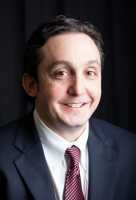17 Jan Public Database Tracks Efficacy of Deep Brain Stimulation in Tourette Syndrome
MedicalResearch.com Interview with:
Michael S. Okun, M.D.
Adelaide Lackner Professor and Chair of Neurology
Fixel Center for Neurological Diseases
Gainesville FL 32607
MedicalResearch.com: What is the background for this study? What are the main findings?
Response: Deep brain stimulation is a promising therapy for carefully selected Tourette syndrome patients who fail medication and behavioral therapy. This study draws data from 31 institutions and 10 countries and shows a significant improvement of motor and vocal tics across multiple brain targets. Because even expert DBS centers only perform 1-2 surgeries a year this type of database and registry will be critical to move the field forward.
MedicalResearch.com: What should readers take away from your report?
Response: Deep brain stimulation has potentially powerful effects on modulating a brain network important for generation and suppression of tics. This study showed that multiple brain regions were effective in improving symptoms and in the future this registry should help us accumulate the data to help guide clinicians and patients in choosing optimal brain targets and approaches. This will be a positive step toward personalized medicine for severe Tourette syndrome patients.
MedicalResearch.com: What recommendations do you have for future research as a result of this work?
Response: The Tourette DBS database and registry study group meets every year and we aim to make information available to push the field forward and to identify the areas of need. The data suggest that improvements in lead design and hardware could improve the risk benefit ratio and enhance outcomes. The field is also moving toward smart closed loop DBS devices that will respond in real time to the tic signals present in the brain circuitry. The approaches should get better and the patients should benefit.
MedicalResearch.com: Is there anything else you would like to add?
Response: The results of this study should not be interpreted that everyone with Tourette syndrome should have DBS. If you fail medicines and behavioral treatments the next step would be a complete interdisciplinary evaluation at an expert center.
Citations: Martinez-Ramirez D, Jimenez-Shahed J, Leckman JF, Porta M, Servello D, Meng F, Kuhn J, Huys D, Baldermann JC, Foltynie T, Hariz MI, Joyce EM, Zrinzo L, Kefalopoulou Z, Silburn P, Coyne T, Mogilner AY, Pourfar MH, Khandhar SM, Auyeung M, Ostrem JL, Visser-Vandewalle V, Welter M, Mallet L, Karachi C, Houeto JL, Klassen BT, Ackermans L, Kaido T, Temel Y, Gross RE, Walker HC, Lozano AM, Walter BL, Mari Z, Anderson WS, Changizi BK, Moro E, Zauber SE, Schrock LE, Zhang J, Hu W, Rizer K, Monari EH, Foote KD, Malaty IA, Deeb W, Gunduz A, Okun MS. Efficacy and Safety of Deep Brain Stimulation in Tourette SyndromeThe International Tourette Syndrome Deep Brain Stimulation Public Database and Registry. JAMA Neurol. Published online January 16, 2018. doi:10.1001/jamaneurol.2017.4317
https://jamanetwork.com/journals/jamaneurology/fullarticle/2669923
MedicalResearch.com is not a forum for the exchange of personal medical information, advice or the promotion of self-destructive behavior (e.g., eating disorders, suicide). While you may freely discuss your troubles, you should not look to the Website for information or advice on such topics. Instead, we recommend that you talk in person with a trusted medical professional.
The information on MedicalResearch.com is provided for educational purposes only, and is in no way intended to diagnose, cure, or treat any medical or other condition. Always seek the advice of your physician or other qualified health and ask your doctor any questions you may have regarding a medical condition. In addition to all other limitations and disclaimers in this agreement, service provider and its third party providers disclaim any liability or loss in connection with the content provided on this website.
Last Updated on January 17, 2018 by Marie Benz MD FAAD

